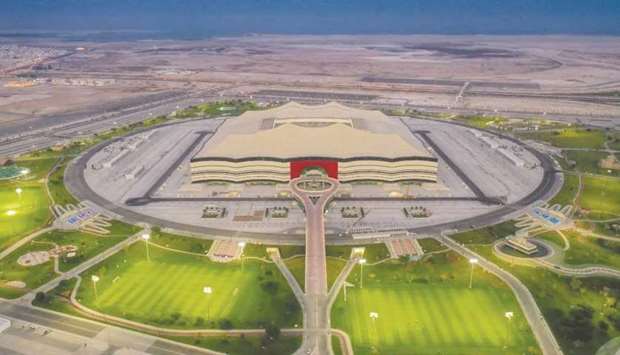In the context of these efforts, it adopted an important set of policies, including the policy of economic diversification and focus on the green economy
Qatar is aware of the importance of preserving the environment. His Highness the Amir Sheikh Tamim bin Hamad al-Thani stressed in his speech before the Shura Council in its 50th annual session, that the state pays special attention to protecting the environment by issuing the necessary legislation in this regard and promoting awareness of the importance of the environment in our daily lives, recycling waste and harmful waste, monitoring air and sea water quality, and providing financial incentives to companies that provide projects which preserve the environment and ward off climate change.
The establishment of the Ministry of Environment and Climate Change in the recent ministerial reshuffle is a strategic step, confirming the continuous interest and unlimited support that His Highness gives to the issue of environment and climate change, as well as the launching of Qatar’s National Strategy for Environment and Climate Change by HE Sheikh Khalid bin Khalifa bin Abdulaziz al-Thani, the Prime Minister and Minister of Interior, which aims to protect the Qatari environment and to enhance them to maintain the quality of life of the Qatari people, and to ensure long-term economic resilience.
The Qatar National Environment and Climate Change Strategy, which was launched last weekend, emerged from the Qatar National Vision 2030, and it constitutes one of the four pillars aimed at achieving “harmony between economic growth, social development and environmental protection.” Qatar has relied on these solid foundations to establish a working team concerned with the issue of the environment under the auspices of HE the Prime Minister and Minister of Interior and was assigned the task of developing the strategy.
According to HE Sheikh Dr Faleh bin Nasser bin Ahmed bin Ali al-Thani, the Minister of Environment and Climate Change, the launch of the Qatar National Strategy for the Environment and Climate Change, marked the beginning of a new phase of Qatar’s efforts to confront the phenomenon of climate change, given that Qatar has been playing a major role in the field of co-operation with international organisations and bodies concerned with environmental affairs and climate change, as well as it was one of the first countries to accede to the United Nations Framework Convention on Climate Change in 1996, the Kyoto Protocol in 2005 and the Paris Agreement in 2016. Qatar is also a member of the International Renewable Energy Agency (IRENA), which supports countries in their transition to the future of sustainable energy. Qatar also hosted the 18th Conference of Parties (COP18) in 2012, which is considered one of the global negotiating landmarks for climate change that contributed to reaching the Paris Agreement.
Since climate change is one of the most important environmental issues at the national and global levels, given the economic, social and environmental risks that this change entails, this issue has received early and great attention from our wise leadership, and the efforts made by the state to confront the repercussions of climate change and adapt to its possible effects on environmental systems and economic sectors. In the context of these efforts, it adopted an important set of policies, including the policy of economic diversification and focus on the green economy, the policy of diversifying energy sources focusing on renewable and clean energy and enhancing energy efficiency, the policy of sustainable transport, sustainable urban planning and others.
Commitment to achieving environmental sustainability goals is at the fore in the ongoing preparations to host the FIFA World Cup Qatar 2022 at all levels, as the Supreme Committee for Delivery & Legacy continues its work to organise the first carbon-neutral event in the history of the World Cup competitions, and to establish global standards in the sector of environmental conservation, which is a role model in major world championships, in addition to building a sustainable legacy that will benefit future generations in Qatar, but also in the region and the world, through the “10” methods adopted in the file of hosting the World Cup with the aim of achieving carbon neutrality.
• (Translated from the original article published in Arabic daily Arrayah)

COMMITMENT: Al Bayt Stadium will host the opening game of the FIFA Arab Cup between Qatar and Bahrain on November 30. Commitment to achieving environmental sustainability goals is at the fore in the ongoing preparations to host the FIFA World Cup Qatar 2022 at all levels.
